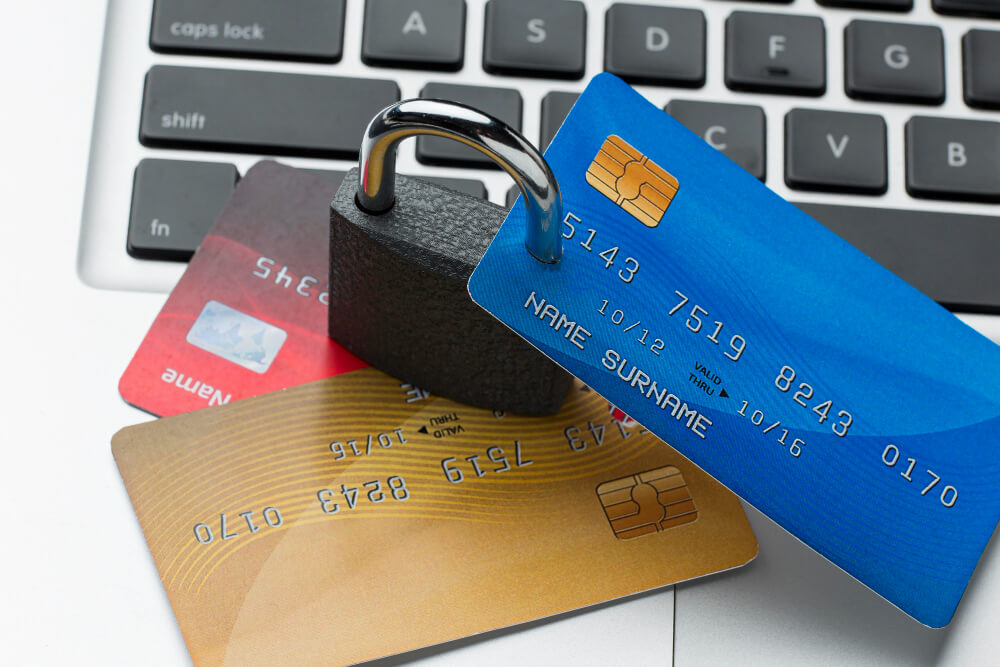Welcome to your comprehensive guide to secured credit cards in the UK! If you’ve ever felt overwhelmed by the world of credit or struggled to access traditional credit cards due to a limited credit history, you’re not alone.

Fortunately, secured credit cards UK offer a practical solution for individuals looking to build or rebuild their credit in UK.
In this guide, we’ll walk you through everything you need to know about secured credit cards, from understanding how they work to choosing the right card for your financial goals.
Chapter 1: Demystifying Secured Credit Cards
What is a Secured Credit Card?
At its core, a secured credit card functions similarly to a traditional credit card but with one key difference – it requires a security deposit as collateral.
This deposit acts as a safety net for the card issuer, reducing the risk of default for them while providing an opportunity for individuals to access credit responsibly.
How Does a Secured Credit Card Work?
When you’re approved for a secured credit card, you’ll be required to make a security deposit, typically equal to your desired credit limit.
This deposit acts as collateral, giving the issuer confidence in extending credit to you.
Your credit limit will usually match the amount of your deposit, although some issuers may offer a slightly higher limit.
Who Can Benefit from a Secured Credit Card?
Secured credit cards are an excellent option for a wide range of individuals, including:
Those with no credit history: If you’re new to credit or have limited credit history, a secured credit card provides a low-risk opportunity to start building credit.
Individuals with poor or damaged credit: If you’ve experienced financial setbacks in the past and have a low credit score, a secured credit card can help you demonstrate responsible credit behaviour and improve your score over time.
Students and young adults: Secured credit cards offer a practical way for students and young adults to establish credit and develop healthy financial habits early on.

Chapter 2: Choosing the Right Secured Credit Card
Factors to Consider When Choosing a Secured Credit Card
Annual Fees: While many secured credit cards have annual fees, some may offer fee-free options. Consider whether the benefits of the card justify the annual fee.
Interest Rates: Compare the interest rates offered by different secured credit cards to ensure you’re getting a competitive rate.
Credit Limit: Evaluate the minimum and maximum credit limits offered by various cards to find one that aligns with your financial needs.
Additional Perks: Some secured credit cards offer perks such as cashback rewards, travel benefits, or credit-building tools. Assess these extras to determine which card offers the most value for you.
Top Secured Credit Cards in the UK
Provide a detailed overview of some of the top secured credit cards available in the UK, highlighting their key features, benefits, and any associated fees.
Chapter 3: Using Your Secured Credit Card Wisely
Tips for Responsible Credit Card Use
Pay on Time: Timely payments are crucial for building and maintaining good credit. Set up automatic payments or reminders to ensure you never miss a due date.
Keep Your Balance Low: Aim to keep your credit utilisation ratio below 30% of your available credit limit. This demonstrates responsible credit management to lenders and can positively impact your credit score.
Monitor Your Credit Score: Regularly monitor your credit score to track your progress and identify areas for improvement. Many banks and credit card issuers offer free credit score monitoring services to their customers.
Avoid Overspending: While it can be tempting to max out your credit card, it’s essential to spend within your means. Remember, you’ll need to repay everything you borrow, plus interest.
Common Mistakes to Avoid
Neglecting to Budget: Failing to budget effectively can lead to overspending and difficulty managing your credit card payments. Take the time to create a budget that aligns with your income and financial goals.
Closing Old Accounts: Closing old credit card accounts can negatively impact your credit score by reducing your overall credit history and increasing your credit utilisation ratio. Instead, consider keeping these accounts open and using them responsibly.
Ignoring Your Credit Report: Your credit report contains valuable information about your credit history and can help you identify errors or fraudulent activity. Regularly review your credit report to ensure its accuracy and address any discrepancies promptly.
Chapter 4: Monitoring and Managing Your Progress
Tracking Your Credit Score
Discuss the importance of monitoring your credit score regularly and provide tips for improving it over time.
Revisiting Your Financial Goals
Encourage readers to revisit their financial goals periodically and adjust their credit-building strategies accordingly.
Whether you’re aiming to qualify for a mortgage, secure a car loan, or simply improve your financial well-being, a secured credit card can be a valuable tool on your journey.
Conclusion
Congratulations! You’ve completed your crash course in secured credit cards in the UK.
Armed with this knowledge, you’re well-equipped to make informed decisions about your financial future.
Remember, building credit is a journey, not a sprint. By choosing the right secured credit card, using it responsibly, and monitoring your progress along the way, you’ll be well on your way to achieving your financial goals.
Cheers to building financial confidence, one swipe at a time!
FAQs
What is a Secured Credit Card?
A secured credit card is a type of credit card that requires a cash deposit to the credit card issuer to open the account.
The amount you deposit, or use to “secure” the account, will be equivalent to the line of credit you receive.
For example, a $500 deposit will get you a card with a $500 line of credit
How does a Secured Credit Card work?
Secured credit cards can be used like any other credit card to make payments, and usually operate on one of the big payment networks like Visa, Mastercard, American Express or Discover.
They are designed for those with limited-to-no credit or those with damaged credit.
Lenders who are reluctant to issue credit to borrowers who have struggled financially or are lacking a credit history may issue secured cards because they require a deposit that can be seized if the debt is unpaid.
This deposit is like insurance for the lender if the cardholder fails to make on-time payments
How to use a Secured Credit Card to improve credit?
Making on-time payments is one of the biggest factors that goes into making up your credit score, accounting for 35% of the total.
Making your monthly payments on time is key to building up a good credit profile.
The best secured cards will report your payments to all three of the major credit reporting agencies (Equifax, Transunion and Experian) so you can eventually graduate to an unsecured card after demonstrating responsible behavior.
Additionally, keeping your credit utilization low is important for building and maintaining good credit
How is credit utilization calculated?
Credit utilization is calculated by dividing your total outstanding debt on your credit card by your overall credit card limit.
For example, if you have a total outstanding balance of $750 and a total available credit of $3,000, your credit utilization ratio would be 25%
What is a good credit utilization ratio?
Many credit experts say you should keep your credit utilization ratio — the percentage of your total credit that you use — below 30% to maintain a good or excellent credit score.
Credit utilization is a major factor in your credit scores, so it pays to keep an eye on it.
View the 30% rule as a good guideline, but be aware that using even less is better for your score.
